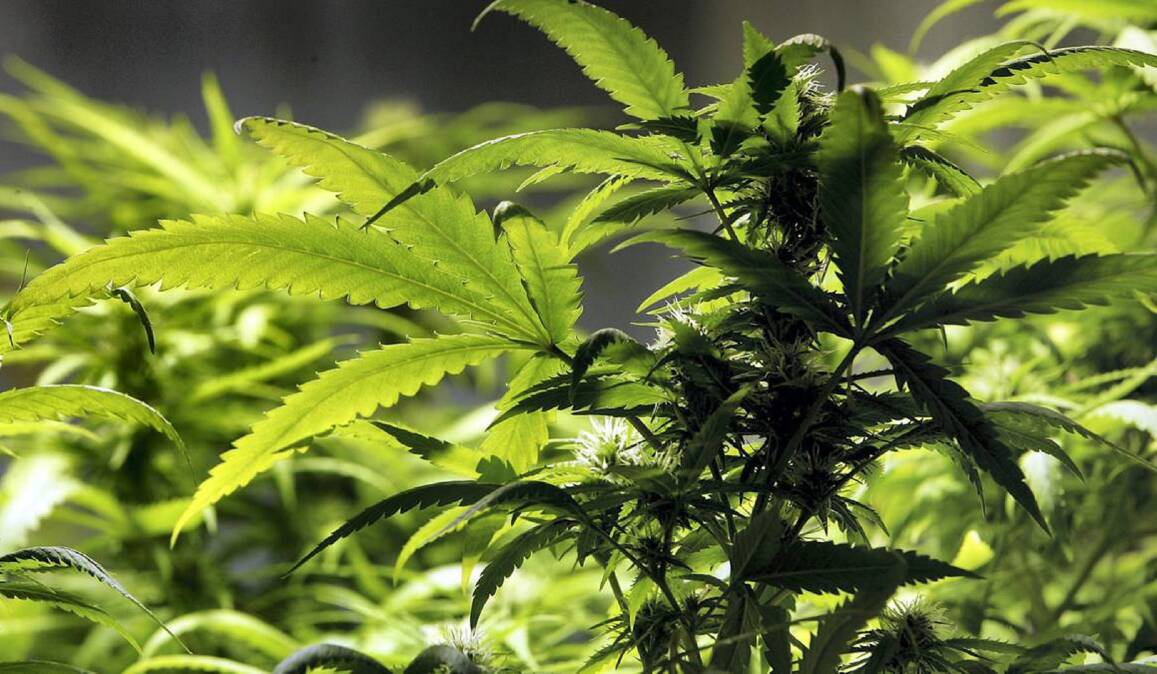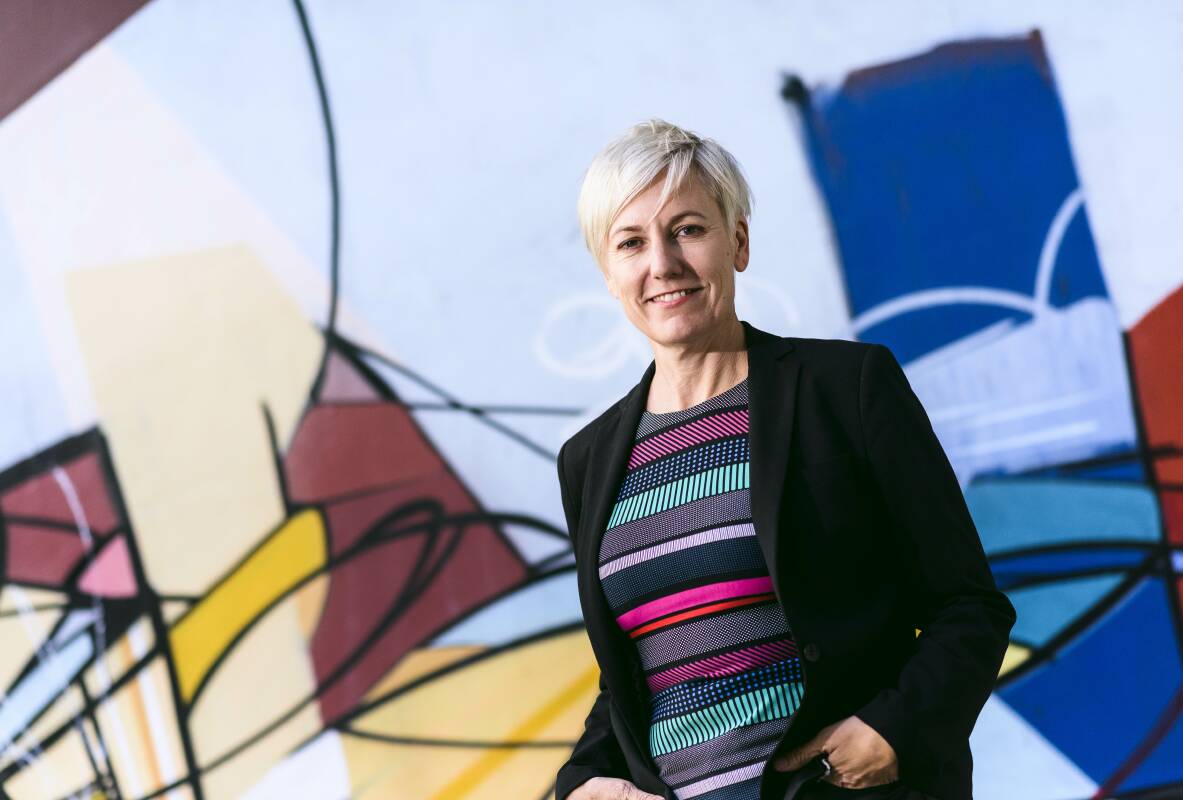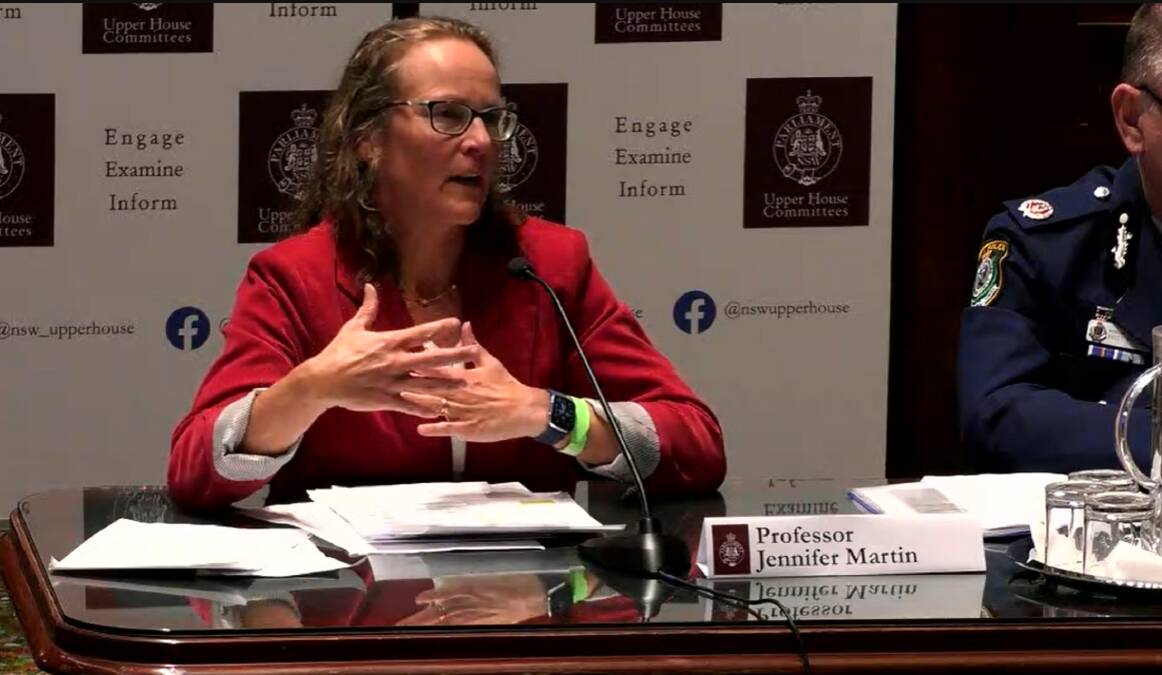
The NSW government was slammed at a parliamentary inquiry on Thursday for directly linking the main compound in cannabis to road fatalities.
Cate Faehrmann, a Greens member of the NSW Legislative Council, asked the government whether there was specific data on "THC-related fatalities" to show its mobile drug testing scheme had been successful.
THC is a psychoactive part of the cannabis plant that can produce feelings of relaxation.
"You suggest that of the 264 fatal crashes in NSW in 2020, THC was a factor in nearly 60 deaths. How was that determined?" Ms Faehrmann said.
Bernard Carlon, chief of the Centre for Road Safety with Transport for NSW, said this related to the "presence of THC" in the drivers' blood.
Ms Faehrmann replied: "So the presence of THC in the drivers' blood makes you draw the conclusion that THC was a factor? Are you serious? You can't be serious?
"Did the government draw that conclusion? Or was that peer-reviewed research that found THC was a factor in nearly 60 deaths? Or do you mean it was just present in their system?"

Mr Carlon then referred the question to Professor Jennifer Martin, a clinical pharmacologist representing John Hunter Hospital and the Hunter New England Local Health District.
"The difference between being a factor and the cause - we have this problem in medicine all the time," Professor Martin said.
"It's often done on probabilities and the whole environment. People with THC [in their bodies] are often taking other medicines as well.
"It can be difficult to be certain what has done what. There is a difference between being 100 per cent sure on causality, as opposed to being a factor that is known to contribute to people's impairment, which is known to contribute to death."

The NSW Legislative Council inquiry heard that people using prescribed medicinal cannabis were being discriminated against, as they faced criminal penalties if THC was detected in their saliva at roadside drug tests.
Users of other prescription drugs such as opioids, benzodiazepines and sedating antidepressant drugs, however, can drive without facing such penalties.
Leaders from the community, legal and academic sectors asserted that users of medicinal cannabis should be able to drive without the fear of facing drug-driving charges.
The inquiry, held by the upper house's law and justice committee, is examining Ms Faehrmann's bill to amend road laws to enable a medicinal cannabis exemption.
The bill seeks to exclude users of medicinal cannabis from "the application of the offences relating to driving while a prescribed illicit drug is present in a person's oral fluid, blood or urine".
The Law Society of NSW submitted to the inquiry that the government had provided "a medical defence to those who legitimately use morphine for their pain".
"We consider it appropriate to provide the same defence for those who legally use medicinal cannabis," the Law Society said in a submission.
Professor Iain McGregor, of the Lambert Initiative for Cannabinoid Therapeutics at the University of Sydney, told the inquiry that more than 130 conditions were currently being treated with medicinal cannabis products in Australia.
More than 250,000 prescriptions had been issued by about 4000 prescribing doctors since the national medicinal cannabis scheme began in 2016.
"This has become a mainstream medicine. That exaggerates even further the need to deal with the driving issue," Professor McGregor said.
Professor McGregor said treatment of cancer symptoms was in the top 10 conditions for which medicinal cannabis was prescribed.
He said it was difficult to attract people undergoing chemotherapy to a study into medicinal cannabis due to "the driving restrictions".
"These patients were told, 'sorry you're not allowed to drive for the duration of several weeks of that trial'. We estimate about 50 per cent of potential recruits to the trial walked away for that reason."
This problem was "particularly acute" in regional and rural NSW where people have to drive to get around.
The inquiry also examined how long THC stays in a person's system. Dr Thomas Arkell, a research fellow at Swinburne University of Technology, said it was "very hard to say exactly how long it stays in your system".
"In oral fluid, which is obviously what roadside drug testing uses, it's highly variable. For a lot of people, it can be gone within a couple of hours.
"I've been running a study over the last year with patients in Victoria. Some people are still testing positive the following morning for somewhere between 10 and 12 hours after they would have last used a dose of whatever product they've been prescribed."
Dr Arkell said it was possible that "THC can be present in your oral fluid and you're not impaired at all".
"It may be for some people that it does reflect recent drug use and impairment. But it's not a reliable indicator of impairment."
Dr Arkell said the issue "comes back to civil liberties".
"The real comparison we should be making is to other medicines that patients already do take and drive under the influence of," he said.
"We should treat all medicine equally."
Dr Danielle McCartney, of the Lambert Initiative, said THC-induced impairment typically lasted from three to 10 hours, depending on dose and method of consumption.
She said five hours was the general recommendation to wait before driving after medicinal cannabis use. She added that some patients probably consume "lower doses of THC to avoid intoxication".
Professor McGregor said studies showed an increased crash risk of 10 to 40 per cent for those "acutely intoxicated with cannabis".
But he said no quality studies had been done that examine medicinal cannabis users and driving.
"Our assumption would be the crash risk may indeed be minimal, if not negligible, in people using cannabis for medical reasons.
"Also if you're alleviating a medical condition, be it insomnia, pain or spasticity if you have MS, these are conditions that will impair your driving anyway. If you're taking medication that relieves your pain, insomnia and spasticity, then that may actually improve your driving."
Dr Michael White, a drugs and driving researcher with the School of Psychology at University of Adelaide, said the risk of a crash while impaired with cannabis was "a lot less" than alcohol.
He said the commonly-held position was that cannabis increased the risk of crashing by 40 per cent, adding that this risk was "very low".
"It's a matter of getting that 40 per cent into perspective. It's a lot less than alcohol at 0.05 BAC [blood alcohol concentration], which doubles your risk of crashing - it's 100 per cent. It's a lot less than travelling 5km over the speed limit in a 60kmh zone, which doubles your crash risk. The use of a motorbike increases the risk of crashing 30-fold. That's 3000 per cent.
"If you look at all the road safety problems, including other drugs like benzodiazepines and opioids, cannabis is way down at the bottom of the list as far as crash risk goes. It's a very small risk compared with almost any other cause of concern to road safety."
Labor member Rose Jackson asked whether any research examined the risk of crash for patients who regularly use prescribed and legal medicinal cannabis.
"There is a difference between someone who is a regular user of medicinal cannabis taking that substance in consultation with a doctor and a young bloke who's stoned off his brain," Ms Jackson said.
Dr White had read hundreds of papers on cannabis and crashing, but none had "tried to work out where the cannabis came from - whether it was taken medicinally or recreationally".
Peter Dunphy, head of transport safety with Transport for NSW, said "there is no reliable way to distinguish at the roadside whether the source of THC detected is illicit or prescribed as medicinal, or whether the driver has used cannabis illicitly in addition to their prescription".
"While it's true much of the evidence for impairment impacts are from illicit THC use, there is still evidence that medicinal cannabis users can be impaired for a period of time. Until there is clear evidence on the effects of medicinal cannabis on driving, the NSW government will continue to take a cautious approach to changing policy and consider the safety of all road users."
Mr Carlon said there was a "global consensus that THC impairs key driving skills ... in relation to recreational cannabis" . "There is no significant body of evidence in the same vein with regard to medicinal cannabis," he said.
Mr Dunphy and Mr Carlon agreed that more studies were needed. "The research is incomplete," Mr Dunphy said.







